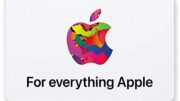Blockchain technology, once primarily associated with cryptocurrencies like Bitcoin, is now making significant strides in various sectors. One of the most exciting areas where blockchain is causing a stir is the gaming industry. By offering unparalleled transparency, security, and new monetization models, blockchain is transforming how games are developed, played, and monetized. It’s also now easier than ever to find a safe place to store crypto for gaming (and other purposes), with options like those recommended by bestcryptowallet offering secure storage for and convenient access to your coins. Wallets like these gaining traction allows for seamless integration of blockchain assets into daily gaming experiences.
Revolutionizing Game Ownership and Digital Assets
One of the most transformative impacts of blockchain in gaming is the way it handles digital ownership. Traditionally, when players buy in-game items or assets, they are often restricted to the specific game or platform. Blockchain introduces the concept of true ownership through non-fungible tokens (NFTs). NFTs are unique digital assets that players can own, trade, or sell outside of the game environment.
As of this year, it’s thought that the NFT gaming market is valued at approximately $471.90 billion, showcasing the growing interest in digital ownership. Games like “Axie Infinity” and “Decentraland” have leveraged NFTs to allow players to buy, sell, and trade assets, such as virtual land or character skins, on open markets. This shift not only provides gamers with tangible value but also empowers them to control their digital assets in ways that were previously unimaginable.
Enhancing Security and Reducing Fraud
Blockchain’s decentralized nature offers robust security features that are crucial in the gaming industry. Traditional online games often face issues with fraud, hacking, and cheating, which can undermine player trust and disrupt the gaming experience. Blockchain’s immutable ledger provides a secure way to verify transactions and ownership, making it much harder for malicious actors to tamper with game data.
For example, the gaming platform “Enjin” uses blockchain to ensure the authenticity of virtual items and transactions. By recording every transaction on a public ledger, Enjin reduces the risk of fraud and counterfeit items. According to a 2023 report, blockchain-based gaming platforms have seen a 40% reduction in fraud incidents compared to traditional gaming systems. This enhanced security not only protects players but also builds trust within the gaming community.
Transforming Monetization and Reward Systems
Blockchain is also revolutionizing how games are monetized and how players are rewarded. Traditional games often rely on microtransactions and in-game purchases, which can sometimes lead to a pay-to-win scenario. Blockchain introduces new monetization models that are more player-centric and transparent.
Play-to-earn (P2E) models are a prime example of how blockchain is changing the monetization landscape. In P2E games, players can learn and earn cryptocurrency or other digital rewards based on their in-game achievements and contributions. Games like “The Sandbox” and “Alien Worlds” utilize blockchain to reward players with tokens that can be traded or used for various purposes within the game.
As of last year, the play-to-earn gaming market was worth around $3.3 billion, reflecting the growing appeal of these new monetization strategies. This shift not only offers players a new way to earn from their gaming skills but also provides developers with innovative revenue streams that go beyond traditional methods.
Facilitating Decentralized Gaming Ecosystems
Blockchain’s decentralized nature is paving the way for new types of gaming ecosystems. Decentralized autonomous organizations (DAOs) and decentralized applications (dApps) are emerging as key components of this new landscape. DAOs allow players to have a say in the governance and development of games, creating a more democratic and community-driven approach to game creation.
For instance, “MonaCoin” has introduced a DAO model where players can vote on game updates, features, and community initiatives. This participatory approach not only enhances player engagement but also ensures that games evolve in line with the interests of their communities. As of early 2024, DAOs have been adopted by over 30 gaming projects, demonstrating the growing interest in decentralized governance within the gaming sector.
Looking Ahead: The Future of Blockchain in Gaming
The future of blockchain games is looking bright. The technology will only keep improving and evolving, so we can expect to see even more innovative applications and integrations within the industry. With ongoing advancements in blockchain technology, such as improved scalability and interoperability, the potential for blockchain to further revolutionize gaming is boundless.
For example, upcoming blockchain updates are focusing on enhancing transaction speeds and reducing costs, which will make in-game transactions smoother and more efficient. Additionally, as blockchain adoption becomes more widespread, we can anticipate a greater variety of games incorporating blockchain elements.
Blockchain is not just a passing trend but a transformative force in the gaming industry. By revolutionizing game ownership, enhancing security, innovating monetization models, and facilitating decentralized ecosystems, blockchain is reshaping how games are played and enjoyed. As we move forward, the integration of blockchain promises to unlock even more possibilities, making the gaming experience more dynamic and rewarding for players and developers alike.




